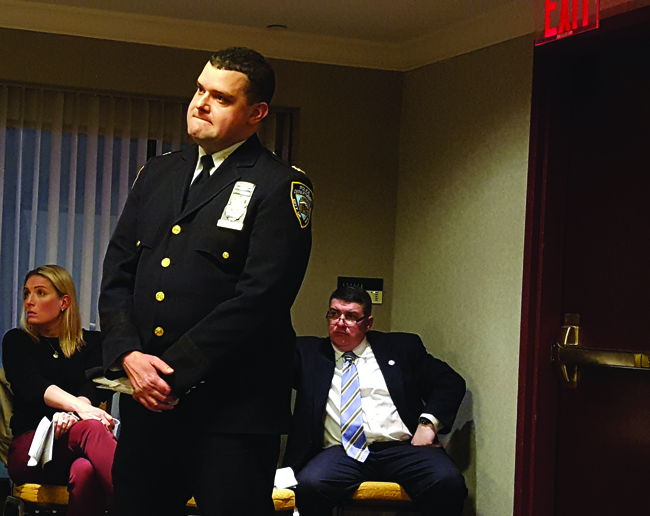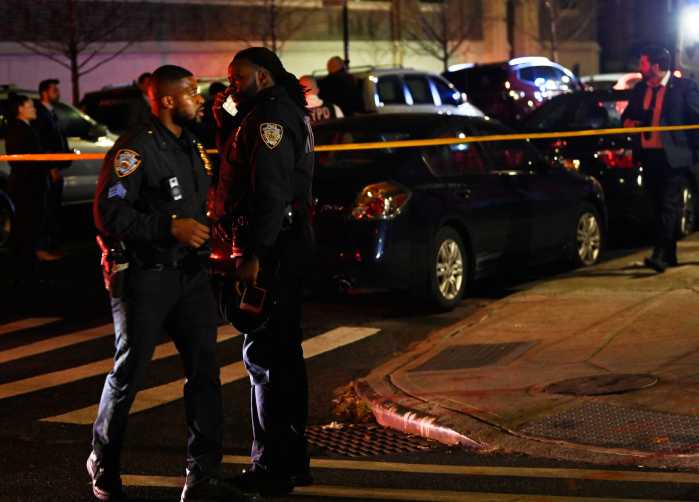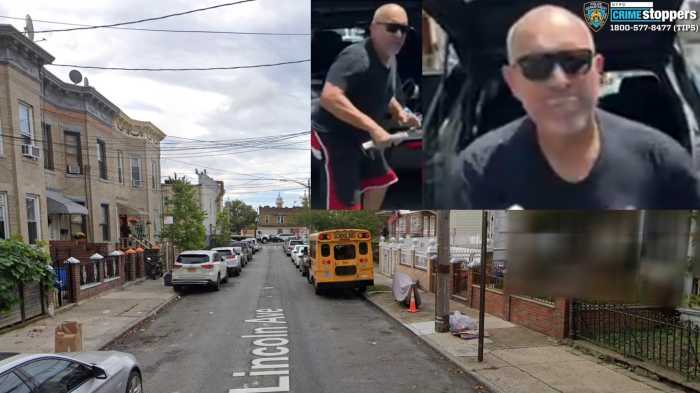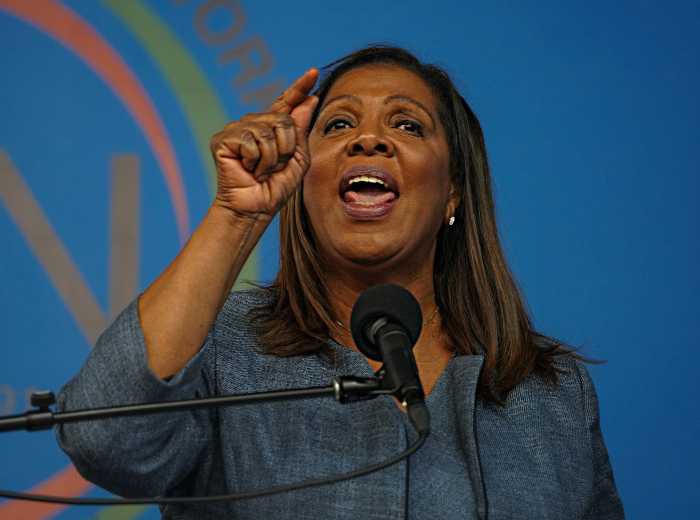
BY DUSICA SUE MALESEVIC | Amid talk of so-called sanctuary cities and federal grant withdrawal threats, the Midtown South Community Council (MSCC) invited a speaker to their Thurs., April 20 meeting to talk about shifts in federal immigration enforcement.
Ioana Calin is a staff attorney for the Legal Aid Society (legal-aid.org), and after the election switched from its criminal defense division to immigration. “A non-citizen can be anyone who is undocumented either because they came here without any documentation, or they’re a visa overstay. Anybody who’s not a citizen and is arrested, there… can be severe immigration consequences,” Calin said.
Under the Obama administration, she explained, there were different priorities when it came to enforcement — being deported — that depended on the outcome of the criminal case. “Under the new executive orders that were passed at the end of January this year, under the new administration, all of that has changed,” she said. Now, if an undocumented immigrant is arrested, they are a priority for enforcement, Calin told the crowd at The New Yorker hotel (481 Eighth Ave., btw. W. 34th & 35th Sts.).
“That’s a really big difference because that says it does not matter if your case is dismissed, it doesn’t matter if the prosecution, the [district attorney]’s office, declines to prosecute, doesn’t matter if you go to trial and you get acquitted — you are priority for removal,” Calin said. She said that those who have been convicted of minor offenses — say petty larceny, which is theft under $1,000 in New York — are now targeted and put into removal proceedings.
Another change is what happens to those caught illegally crossing into the country from Mexico. Under the Obama administration, if a person was caught while trying to cross the border, they were fingerprinted and then turned around to go back through Mexico, Calin said. This policy was known as “catch and release,” she said.
Under the Trump administration, if a person is apprehended at the border, they will be placed in a detention center. Bond, Calin said, will not be available for at least the first six months and it could take anywhere from nine to 12 months for the removal proceedings.
Calin recommended that people get New York City’s municipal identification card (IDNYC; nyc.gov/idnyc), and also encouraged them to have emergency plans in place in case of detention or deportation — by keeping documentation in two places, and if their children were born in the United States, to make sure they have up-to-date passports. She also recommended appointing a guardian to make decisions, such as those regarding school or medical care.
Calin stressed that as of now, people have not been deported at a higher rate than the last administration, but that there will likely be an increase in the near future.
New York City has a detainer law that says the Department of Corrections will not cooperate with ICE (Immigration and Customs Enforcement), Calin said. There have been a few exceptions, such as when ICE has a federal judicial warrant in addition to a detention order, and the person has been convicted of a serious violent crime in the past five years, or is on the terrorist watch list, she said.

DUMPSTER DILEMMA | Residents of W. 36th St., near the Midtown South Precinct (which is located at 357 W. 35th St., btw. Eighth & Ninth Aves.), spoke about an issue with the stationhouse’s two dumpsters.
“We have a petition respectfully requesting that we remove the dumpsters from West 36th Street,” resident Brian Weber said. “The petition highlight[s] a number of the key issues that we’re experiencing. We understand that the dumpsters were put there in efforts to corral the trash that had been previously been left out on the street, but it’s created a number of unintended consequences.”
Fifty-one residents from 348 and 360 W. 36th St. and nearby signed the petition. The residents say the front-loading dump trucks that collect the trash from the dumpsters are loud. “To make matters worse, this usually occurs at six in the morning — between 6 and 6:30 in the morning,” Weber said. “It wakes up everyone in our building.”
John A. Mudd, the president of the council, gave some background on the issue. The precinct’s neighbors had complained about the amount of trash it put out — a problem that was compounded by people throwing things on top of the garbage, he said.
Captain Stephen Spataro, executive officer for Midtown South Precinct, said the stationhouse has 500 people working in the building to serve the community. “The building was constructed 50 years ago in a different time, before the Environmental Protection Act, before a lot of things,” he said. “It was a different world then. We’re constrained by the limits of the design of the building as it was constructed half a century ago.”
The garbage was collected in the back, and the precinct received complaints that it was unsightly, he said. The complaints persisted when the trash was moved to the front, and the dumpsters seemed like a solution. “The fact that we need two dumpsters shows how much refuse there is accumulated,” he said.
But residents are unhappy with the large dumpsters, and say a different solution is needed. “These dumpsters are right outside our front door,” Weber said. “We understand that there’s waste management issues with the precinct, but there has to be an alternative solution, and placing two dumpsters in our doorway isn’t it.”
The city’s Department of Sanitation (DOS) collects the trash three times a week, and Spataro said they are constrained by the department’s policies and what they’ll pick up. Sanitation also dictates the sizes of dumpsters.
The parties agreed to meet with the DOS to work something out. “I think if we come together we can find a solution,” Mudd said. “And that’s what we’re here for. I would love to see this resolved.”
DESIGN CONTEST | The council has also launched a Newspaper Dispenser Design Contest, as it looks to replace plastic ones. “The MSCC is looking for innovative designs for an aesthetically appealing outdoor Newsrack/Newspaper Dispenser to improve pedestrian safety and passage in the Midtown South area,” read their April 18 newsletter. “The design should be streamlined, should showcase the publication, should be immovable, and able to withstand damage and the elements.” For more information, visit midtownsouthcc.org or email john@midtownsouthcc.org.
The Midtown South Community Council meets on the third Thurs. of the month, 7 p.m., at the New Yorker Hotel (481 Eighth Ave., btw. W. 34th & 35th Sts.).




























